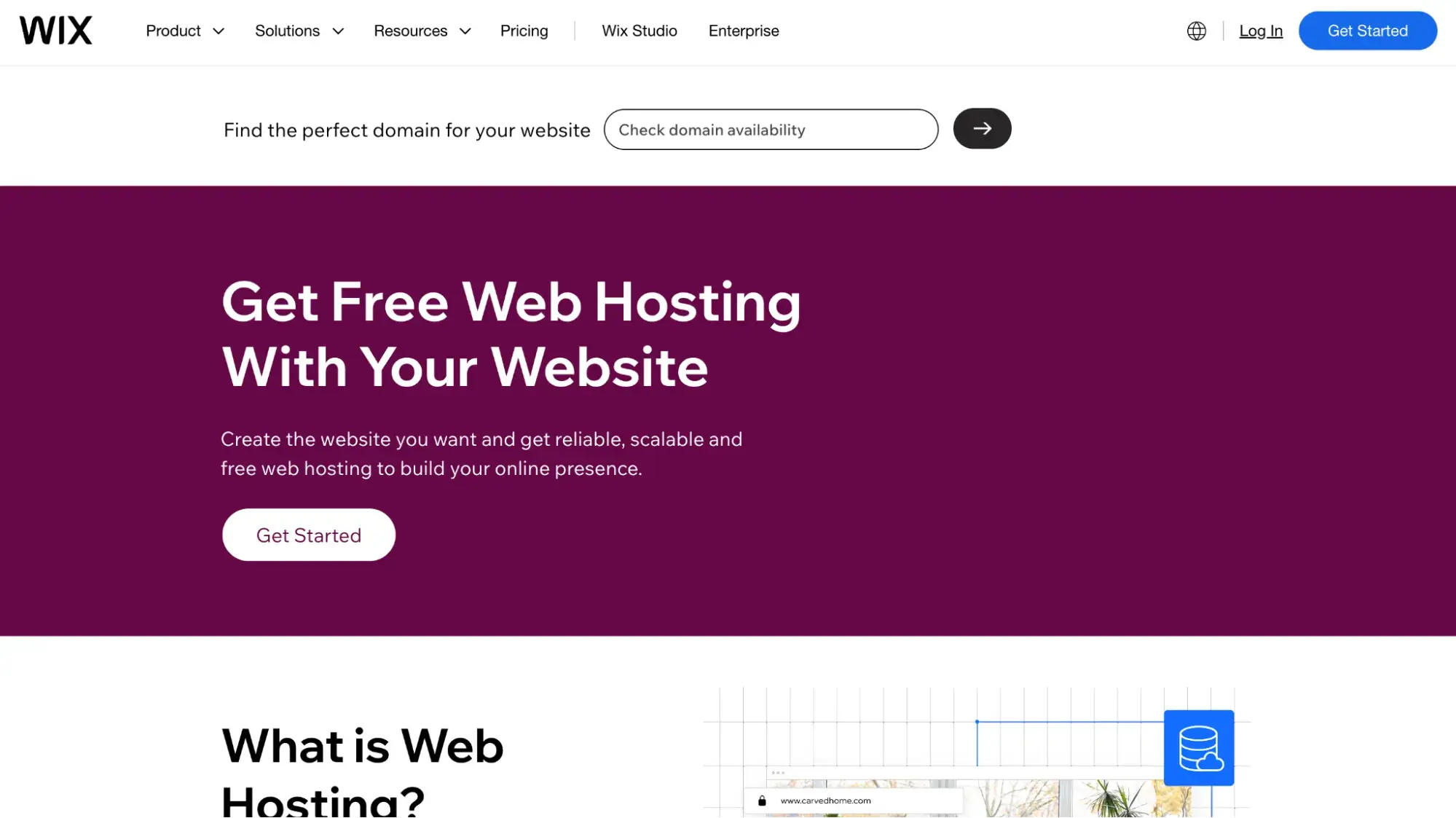
Unveiling the Best Website Hosting for Small Business in 2024
When it comes to establishing a robust online presence, choosing the best website hosting for small business is a critical decision that can shape your company’s future. In 2024, an increasing number of businesses are recognizing the importance of reliable web hosting as they navigate the digital landscape. With countless options available, it’s essential to understand what features and services will propel your business forward.
In this article, we explore various types of web hosting solutions available today, along with their advantages, disadvantages, and factors to consider when selecting the best website hosting for small business. Let’s dive into the elements that make up effective web hosting and how they cater specifically to the needs of small businesses.
Understanding Different Types of Web Hosting Solutions

To choose the best website hosting for small business, it’s important to grasp the different types of web hosting solutions available. Each has its own set of benefits and drawbacks, catering to various needs and budgets.
Shared Hosting: Affordable Yet Limited
Shared hosting is often the go-to choice for small businesses due to its affordability. This hosting type involves multiple websites sharing a single server’s resources.
Cost-Effectiveness
One of the most appealing aspects of shared hosting is the cost. For startups and small businesses with limited budgets, shared hosting provides an economical way to get online. Monthly prices can be incredibly low, which allows businesses to allocate funds to other pressing areas such as marketing or product development.
Performance Concerns
While shared hosting is budget-friendly, it’s not without its downsides. With many websites drawing from the same server resources, performance can suffer during peak traffic times. Loading speeds might slow, leading to potential customer dissatisfaction. For a growing business aiming to scale up, this could be a crucial factor to consider.
Security Risks
Another area of concern is security. Since numerous sites are hosted on the same server, the risk of one compromised site affecting others increases. While reputable providers implement measures to protect their servers, vulnerabilities may still exist. Therefore, shared hosting may be suitable for new ventures but could pose risks as the business grows.
VPS Hosting: Striking a Balance Between Cost and Control
Virtual Private Server (VPS) hosting offers a middle ground for small businesses that require more control and performance than shared hosting can provide while still being budget-friendly.
Enhanced Performance
With VPS hosting, you’re not completely isolated like with Dedicated hosting, but you have guaranteed resources allocated to your site. This means improved loading times and better overall performance. If your website begins to attract more visitors, VPS hosting can handle increased traffic without significant slowdowns.
Greater Control and Customization
Unlike shared hosting, VPS allows for greater customization and control over server settings. As a small business, you may have specific software needs that a shared environment cannot accommodate. VPS hosting gives you the flexibility to install applications and optimize settings according to your business requirements.
Scalability Options
As your business grows, so can your hosting plan. VPS hosting enables easy upgrades to accommodate expanding traffic and resource needs. This scalability ensures your website can grow alongside your business without substantial disruption.
Dedicated Hosting: Ultimate Power for Established Businesses
Dedicated hosting is designed for larger businesses that require maximum performance and control. Though it comes at a higher price point, its advantages can outweigh the costs for established companies.
Exceptional Performance
With dedicated hosting, your business enjoys the entire server’s resources exclusively. This translates to remarkable loading speeds, high uptime, and optimal performance, making it ideal for e-commerce websites or platforms requiring heavy resource usage.
Complete Control
One of the key advantages of dedicated hosting is the level of control it provides. You can customize every aspect of the server, right down to the operating system and software configurations. This feature is especially beneficial for businesses with specific technical needs or regulatory compliance requirements.
Robust Security Measures
Dedicated hosting also offers enhanced security. Since no other websites share your server, the risk of external attacks diminishes significantly. This heightened security is vital for businesses handling sensitive customer data, particularly in sectors such as finance or healthcare.
Cloud Hosting: Flexibility Meets Reliability
Cloud hosting is an innovative solution that leverages multiple servers to host websites, offering flexibility and reliability that can benefit small businesses.
High Availability
Cloud hosting guarantees high availability by distributing resources across several servers. If one server experiences issues, your site remains operational thanks to the seamless transition to another. This redundancy is crucial for businesses that cannot afford downtime, especially those reliant on online transactions.
Pay-As-You-Go Model
The pay-as-you-go model found in cloud hosting allows small businesses to only pay for the resources they need. This flexibility helps manage cash flow, as you can scale your resources based on current requirements without committing to long-term contracts.
Ease of Management
Many cloud hosting providers offer user-friendly management tools, allowing small business owners to monitor their resource usage effectively. These insights empower businesses to make informed decisions about upgrades, ensuring alignment with growth.
Features to Look for in the Best Website Hosting for Small Business

Selecting the best website hosting for small business requires careful consideration of various features that directly impact performance, reliability, and service quality.
Uptime Guarantees
A critical factor in web hosting is uptime guarantees. Uptime refers to the percentage of time your website is operational and accessible. A good hosting provider should offer at least 99.9% uptime.
Why Uptime Matters
Downtime leads to lost sales opportunities, diminished credibility, and frustrated customers. Choosing a hosting provider with a strong uptime record ensures that your website remains available to users whenever they need it.
Assessing Host Performance
Look for hosting providers that publish their uptime statistics and customer reviews. Third-party monitoring tools can also help verify uptime claims. Analyzing this data will enable you to make an informed decision regarding reliability.
Customer Support Services
Responsive customer support is essential for any business owner. Technical issues may arise unexpectedly, and having access to reliable support can save you valuable time and resources.
24/7 Availability
Choose a hosting provider that offers 24/7 customer support via multiple channels, such as live chat, phone, and email. Quick response times are crucial for resolving issues efficiently.
Knowledge Base and Resources
In addition to direct support, a comprehensive knowledge base with articles, tutorials, and FAQs can empower you to troubleshoot common problems independently. A well-informed customer is less likely to experience recurring issues.
Security Features
Security should be a top priority for any small business website, as cyber threats continue to evolve.
SSL Certificates
An SSL certificate encrypts data transmitted between your website and its visitors, enhancing security and trustworthiness. Many hosting providers include free SSL certificates in their plans, which is a must-have for any online business.
Regular Backups
Regular backups ensure that your website can be restored quickly in case of data loss or corruption. Opt for a hosting provider that offers automated backups as part of their service package.
Performance Enhancements
Performance enhancements, such as Content Delivery Networks (CDNs) and caching solutions, can significantly influence your website’s speed and responsiveness.
CDN Integration
A CDN distributes your website’s content across multiple servers located worldwide, minimizing latency and improving load times for visitors regardless of their geographic location.
Caching Mechanisms
Caching stores frequently accessed data temporarily, allowing quicker access for returning visitors. Check whether your hosting provider supports caching options, as this can vastly improve user experience.
Top Recommendations for Small Business Hosting Providers

After considering the types of hosting and essential features, let’s examine some of the top providers offering the best website hosting for small business in 2024.
Bluehost: Ideal for Beginners
Bluehost is renowned for its user-friendly interface and exceptional customer support, making it an excellent choice for small businesses just starting their online journey.
Intuitive Setup Process
Setting up a website with Bluehost is straightforward, even for those without technical expertise. The one-click WordPress installation feature simplifies the process further, allowing users to focus on their core business activities.
Comprehensive Support Resources
With 24/7 support and a rich knowledge base, Bluehost minimizes downtime for small businesses. Whether through live chat or phone calls, assistance is always within reach.
SiteGround: Performance and Security Combined
SiteGround stands out for its superior performance and premium security features, catering to small businesses looking for reliability.
Speed Optimization Techniques
Utilizing powerful caching mechanisms and the latest technology, SiteGround ensures rapid loading speeds. Their commitment to performance makes them an attractive option for businesses poised for growth.
Solid Security Protocols
SiteGround implements proactive security measures, including daily backups and advanced firewalls. These features safeguard your website against potential threats and enhance overall stability.
HostGator: Budget-Friendly Flexibility
HostGator offers affordable plans that don’t compromise on essential features, making it an ideal choice for budget-conscious small businesses.
Versatile Hosting Plans
Whether you need shared, VPS, or dedicated hosting, HostGator provides a range of plans to suit diverse requirements. This flexibility allows businesses to adapt their hosting as they grow.
User-Friendly Control Panel
HostGator’s cPanel provides a simplified interface for managing your website, making it easy for novices to navigate essential hosting functions.
A2 Hosting: Turbocharged Performance
For small businesses that prioritize speed, A2 Hosting offers turbo plans designed to deliver outstanding performance.
Superfast Loading Times
A2 Hosting boasts impressive loading times that can significantly enhance user experience and SEO rankings. Their emphasis on speed is a game-changer for e-commerce and service-oriented businesses.
Developer-Friendly Environment
A2 Hosting caters to tech-savvy users by providing developer-friendly tools and environments. Access to staging sites and a variety of programming languages makes it appealing for developers working on custom solutions.
FAQs About Website Hosting for Small Businesses
What is the difference between shared and VPS hosting?
Shared hosting involves multiple websites sharing resources on a single server, which makes it more cost-effective but limits performance and security. VPS hosting, on the other hand, allocates dedicated resources to each user, providing better performance, control, and security.
How much should I expect to pay for web hosting?
Pricing varies widely depending on the hosting type and provider. Generally, shared hosting can start as low as a few dollars a month, while VPS and dedicated hosting can range from $20 to several hundred dollars monthly, depending on resource allocation.
Do I really need an SSL certificate for my website?
Yes, an SSL certificate encrypts data exchanged between your website and users, enhancing security and building trust. It is especially crucial for e-commerce sites or any platform collecting sensitive information.
Can I switch hosting providers later?
Absolutely! Migrating from one hosting provider to another is common and typically involves backing up your website files and databases, then transferring them to the new host. Most reputable providers offer migration assistance to facilitate the process.
What happens if my website goes down?
If your website experiences downtime, contact your hosting provider’s support team immediately. They will investigate the cause and work on bringing your site back online. Having a good provider with solid uptime guarantees will minimize these occurrences.
Conclusion
Choosing the best website hosting for small business in 2024 is pivotal to ensuring online success. Understanding the different types of hosting solutions—shared, VPS, dedicated, and cloud—along with essential features such as uptime guarantees, customer support, and security measures, is vital.
By exploring the top recommendations, it becomes evident that there is a perfect hosting solution suited to your unique needs. Whether you are starting from scratch or looking to upgrade, investing time and effort in selecting the right web hosting provider will undoubtedly pave the way for your business’s continued growth and success in the digital realm.



